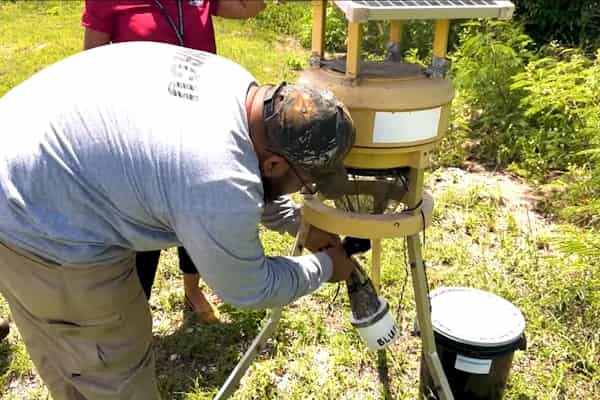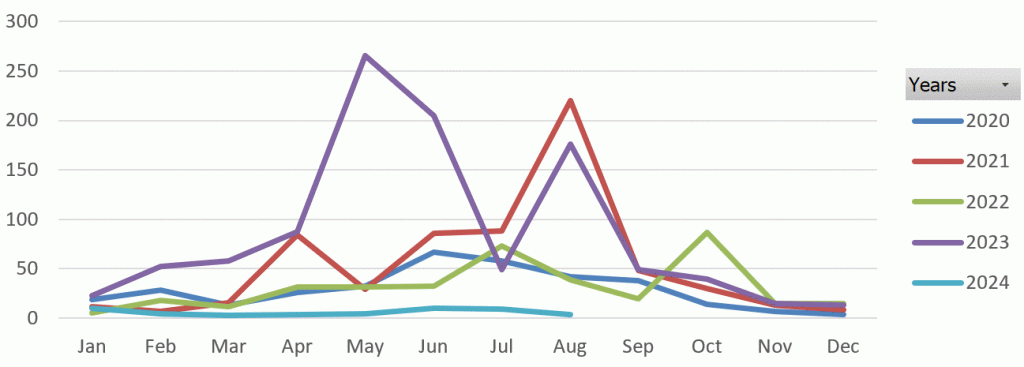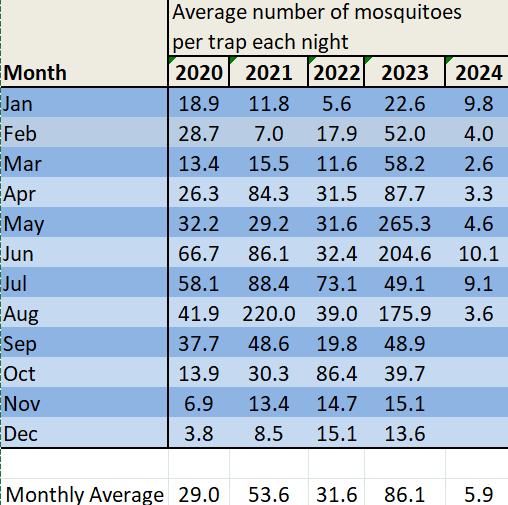
[ad_1]
(CNS): One sign of the dedication of the Mosquito Research and Control Unit staff is their willingness to get bitten in the name of science. In addition to counting the number of mosquitoes caught each night, they also collect data in the form of bites per minute. “This is when disease prevention officers go into areas like swamps and count the number of times they are bitten in a minute,” Kevin Watler, MRCU public education and outreach officer, told CNS.
The department also considers the results of MRCU inspections and public complaints. “We don’t have a large record of public complaints, but that will change in the future,” Watler points out. “All the various factors are combined and the operations manager makes the decision on the day’s operations.”
“Mosquito control is a science-driven process that requires constant vigilance and adaptive strategies,” said Dr. Alan Wheeler, Director of the MRCU. “Our team works tirelessly behind the scenes to collect and analyze larvae from communities, marshes and levees, and conduct property inspections. Every day, we count and identify mosquitoes in traps, and our morning meetings are critical to planning our tasks for the day based on the latest data and community feedback.”
It’s all part of what the MRCU calls “tireless efforts” by staff to keep mosquito populations low this year and ensure the safety and comfort of Cayman residents and visitors. Those efforts appear to be paying off, with data showing a significant drop in mosquito populations this year.
A key aspect of the MRCU’s work is that there is no fixed spraying schedule. “Everything we do is data-driven,” explains Dr. Wheeler. “We base our actions on real-time observations and analysis to ensure the most effective and efficient mosquito control measures. This approach allows us to accurately target problem areas when and where intervention is needed.”
The Cayman Islands has approximately 20 different types of mosquitoesSome people like birds or other animals, while others, such as Aedes aegypti Mosquitoes pose a threat to human health.
“this Aedes aegypti “This is particularly concerning because this is a daytime biting mosquito that breeds in people’s yards,” said Dr. Wheeler. “This mosquito is a major vector of serious diseases like dengue, Zika and yellow fever. With the increase in dengue cases in the area, our disease prevention officers have been actively visiting homes to remove water from containers that could be breeding grounds for dengue.”
MRCU emphasizes that control Aedes aegypti Eliminating mosquitoes requires a community-wide effort. “This is not something we can do alone,” Watler said. “We urge every resident to check their property weekly to see if there are any containers that could hold water, no matter how small. Even bottle caps can be breeding grounds for mosquitoes. If you are bitten by a mosquito, Aedes aegyptithere’s a good chance it was born in your yard or your neighbor’s yard.”
As the new academic year approaches, MRCU has stepped up its mosquito prevention measures to protect returning students and staff. “These measures create a protective barrier around the premises, reducing mosquito populations in the treated areas,” Watler added.
MRCU regularly Facebook and LinkedInto keep the public informed of ongoing efforts to control mosquito populations.
The MRCU said it remains committed to protecting the Cayman Islands from mosquito-borne diseases and maintaining quality of life for all residents. “We ask everyone to join us in our mission to remain vigilant and proactive in mosquito control efforts.”
See below for CIGTV’s special report on MRCU:
[ad_2]
Source link





